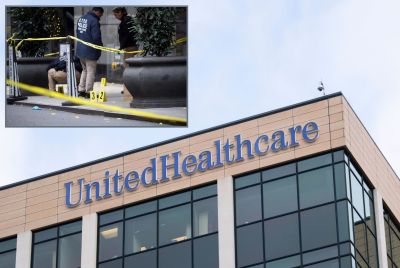On Columbia Anniversary, NASA Remembers Sacrifices
NASA Chief Historian Bill Barry has three days he remembers because he has to, not because he wants to.
Feb. 1, 2003, Jan. 28, 1986 and Jan. 27, 1967 are three days that will live in his head for the rest of his life. On those dates astronauts from the space shuttle Columbia, space shuttle Challenger and Apollo 1 died in the line of duty.
They were the grimmest days in NASA's history, Barry says, but they brought to life a lot of realities about the challenges of space flight. He said the aftermath of the Apollo 1 and Challenger tragedies, set 19 years apart, had very different public reactions.
With Apollo 1, while there was a shock, there was more understanding. It had never been done before and so it may have been a wake up moment for the folks in space community, but there was not so much public shock, Barry recalled.
By the time you get to the Challenger, space flight was routine for Americans. NASA had advertised it that way, the space shuttle was going to make going into space everyday business. We had sent businessmen, congressmen and senators into space and now we were sending teachers.
The aftermath of the explosion, witnessed by millions of people watching it on television, brought a lot of shock and grief to the surface from the public. It was a moment on a par with President John F. Kennedy's assassination. Because of the teacher, there were so many kids watching at school. So for kids who went to school in the 1980s, it was very much a Kennedy-like moment, Barry said.
The attitudes towards space with the general public changed a bit after Challenger, he said. People began to realize these astronauts weren't doing an everyday thing by going up in space. It brought up the fact that by going in space, these people are on the edge of the frontier, Barry said.
The Challenger explosion was a significant setback for NASA. He said after the Challenger, NASA reassessed its approach to safety and the shuttle all together. NASA had a 32-month hiatus of all crewed space flights following the tragedy. Despite the response to Challenger and the changes in NASA's approach, the Columbia disaster in 2003 reopened old wounds.
When something like this happens, you're always reassessing, it redoubles your energy because you want to know if there's something else you could have done, Barry said.
But Columbia didn't elicit the same outpouring of grief the Challenger disaster did. Perhaps it was because there were no 'ordinary' people on board. It might have been because after September 11 such tragedies seemed to pale in comparison -- Columbia was only two years later. Or maybe onlookers knew the dangers of spaceflight, and were more accepting of it.
Despite all the setbacks, Barry said space exploration has always been an important cause for Congress. Even if public interest with space exploration ebbs and flows, he doesn't think anyone would disagree with the need to invest in it.
About one-half of a cent of every federal dollar goes into space. I think most people would agree, that's a small investment for a big payoff, Barry said.
© Copyright IBTimes 2024. All rights reserved.





















